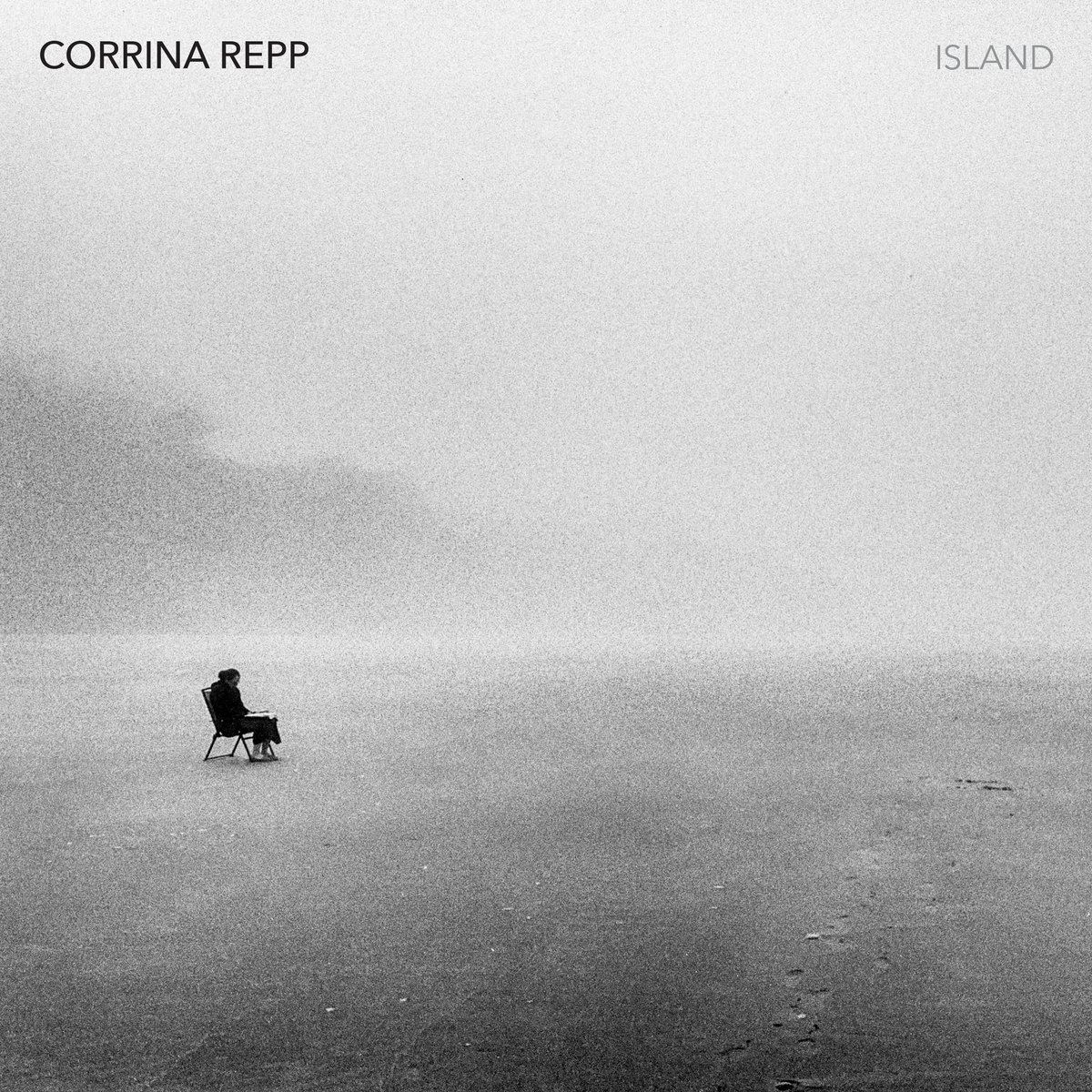What’s perhaps most surprising about Corrina Repp‘s new album Island is not the sound, but the fact it’s the first of its kind. After years honing her skills across the Portland scene over a series of albums released on various labels, recording and performing with the now-disbanded experimental indie rock quartet Tu Fawning, and her and her music appearing on various TV shows (Portlandia, Better Things, Orange Is the New Black), Island is the first album of Repp’s to be entirely self-written and self-recorded.
Produced in a small apartment on a hill in Echo Park, Los Angeles, Repp looked inwards during her time locked down amidst the pandemic. Island is an album that captures this sense of solitude plainly, Repp often using little accompaniment beyond her voice and sparse guitar playing. Atmosphere lingers heavily at points, like an unavoidable mist following her voice through the nine songs here; it’s intimate and self-reflective, but Repp never wallows in despair. Even on lead single “Count The Teardrops”, where Repp confronts and faces grief head on, she still maintains a sense of optimism; “I’ll count the teardrops / Hold out your hands / Let’s give them a name,” she recites reassuringly.
Island‘s best moments might be when Repp says nothing at all though. Evidenced by the wordless coos at the beginning on “Count the Teardrops”, or the transfixing intro to “The Shore” that sounds like a Kate Bush or Tori Amos song lingering in the edge of your memory, Repp has a way of commanding attention with very little to hand. Complete with softly percolating guitar motions and background synths that bring a real sense of place, Repp almost sounds like she’s composing the dust caught in sunlight, rearranging particles before our eyes.
When she swirls more into the mix the effect only deepens. Opener “End of a Gun” presents a sense of foreboding with its low hum throughout, trembling guitar strings, and mysterious lyrics (“Tell them what you got / It may not feel like a lot to a man”). When a low bass drum and finger snaps lock the song into an alluring rhythm, and strings heighten the starkness, the end result is incantory and humbly entrancing. “One Summer” enjoys similar success, Repp capturing that fleeting feeling of a season quickly gone. A darkly glowing synth line hovers throughout, threatening to come up and swallow the trickling guitar and Repp’s alarmed vocals. (The excellent video also adds another surprisingly dark shade to the song.)
Where Island stumbles is in its final moments. Brief but exploratory instrumental “Popular Goods For Giving You A Feel Of Nature” adds some welcome new textures, especially with its weighted piano chords, but thereafter the spell that Repp casts doesn’t enchant quite as strongly. “Passenger” has flair in its rhythm and swells of synth-like horns, and final track “We Were Once On An Island” has a certain stillness to it, but compared to the best moments on the album they fall somewhat flat, leaving the listener wishing Repp had wrapped things up that bit sooner.
Still, when you’re caught up in those better and more transfixing moments of the album, the effect is almost worth a few extra songs trying to capture the same feeling. On the weightless pining of “Capture A Thing” Repp questions “how to capture a thing you can’t see,” but she proves here that she already has the knowledge to do this. Island evokes a wordless sense of grief, loneliness, heartache, solitude, and despair (but also hope and careful anticipation) before Repp even utters the first line in her songs. It’s a hauntingly alluring power that Island thrives on.

